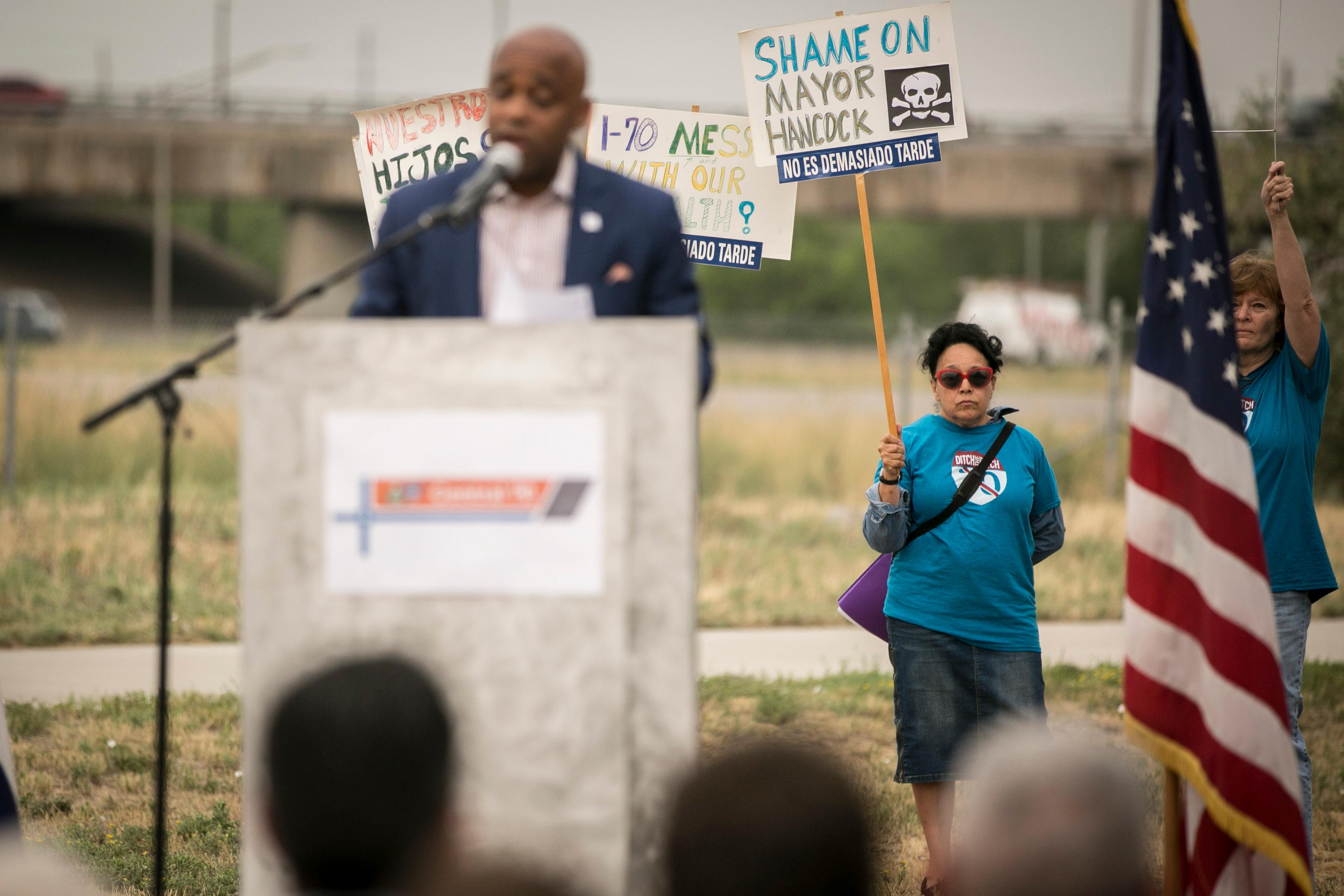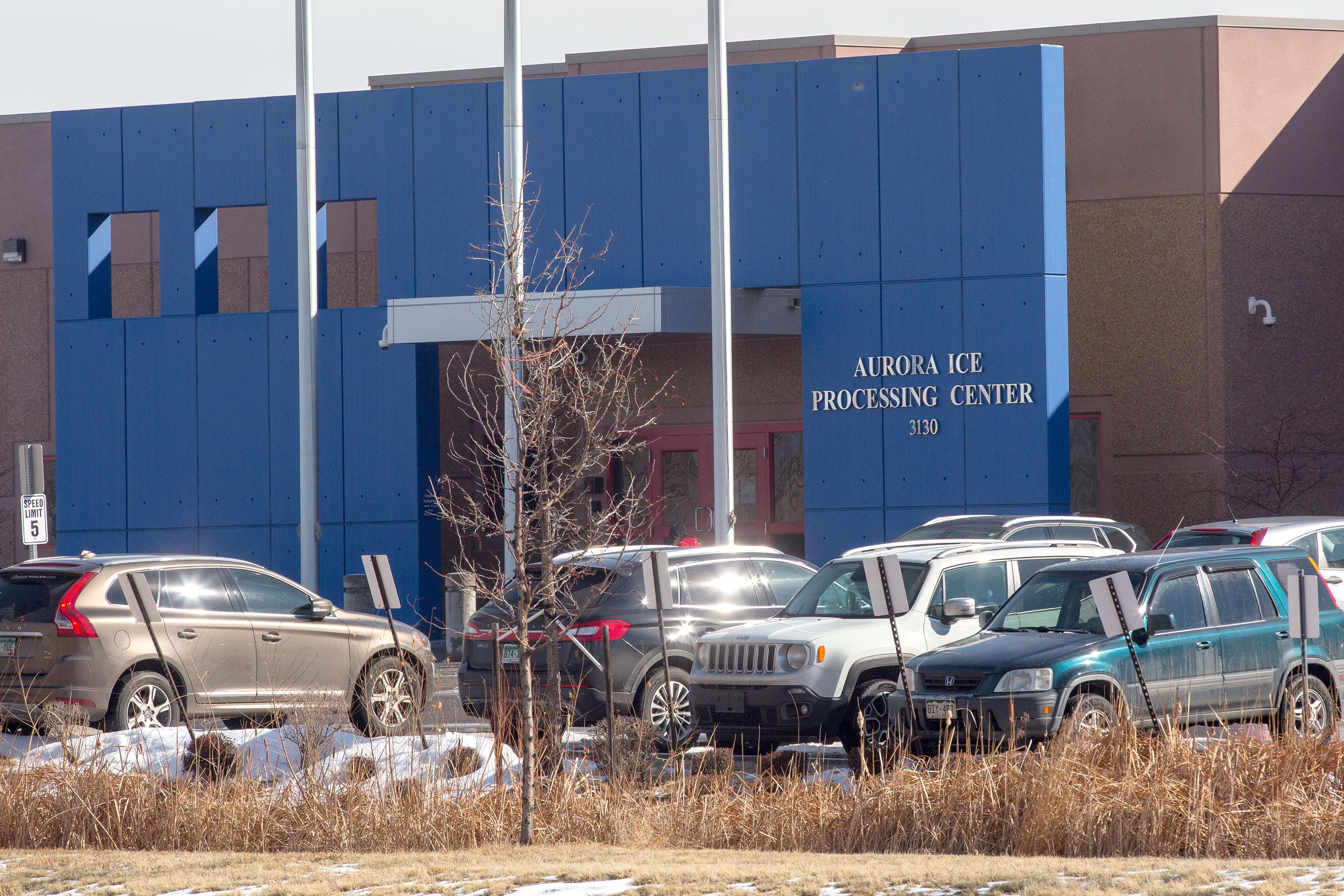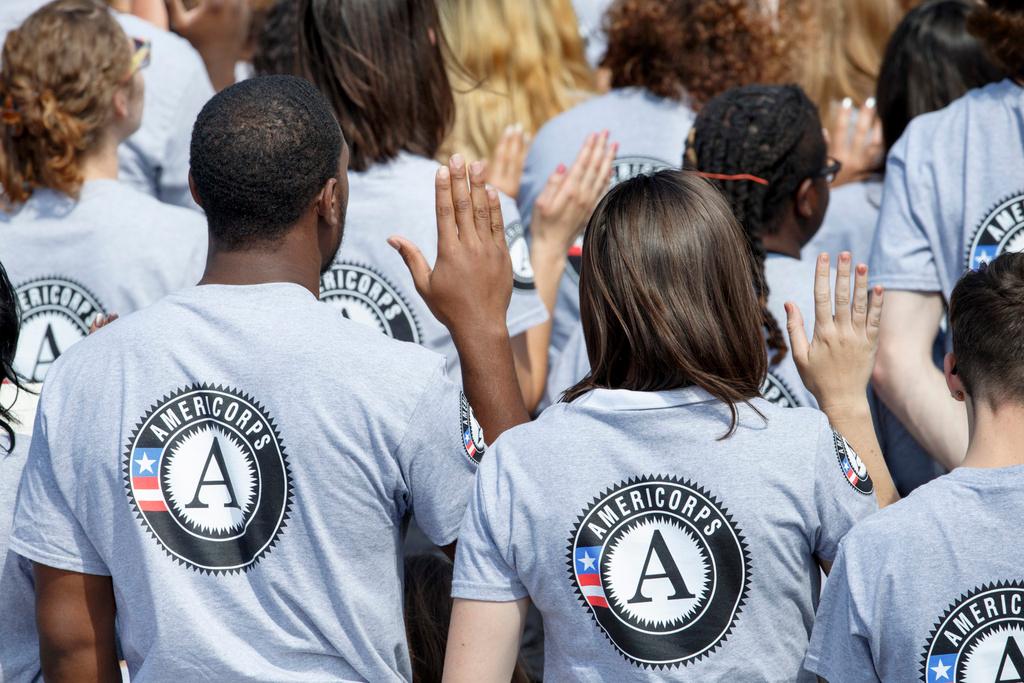
Posted 7:30 a.m. | Updated 11:15 a.m.
After nearly 15 years of planning, hundreds of public comments, and a handful of lawsuits, a page turned Friday morning for a 10-mile stretch of Interstate 70 in north Denver.
A slate of prominent transportation officials and politicians, including Gov. John Hickenlooper, formally broke ground on the $1.2 billion "Central 70" Project that will remake that section of freeway that officials call the lifeblood of the quickly growing Denver metro area.
"Without infrastructure, you can't grow. That's just a fact of life," Hickenlooper said after the event. "It's really building the foundation for the next 50 years of economic development for Colorado."
Critics dismissed the event, saying they'll continue their fight against its construction in the courts and at the ballot box.
The project calls for a viaduct that currently carries I-70 over north Denver neighborhood Elyria-Swansea to be demolished, and the roadway to be lowered below grade from Brighton to Colorado boulevards. An express lane will be added in each direction as well, with space for another to be added in the future.
"We're going to have a highway that's safer, functions better, has sight distances repaired, has interchanges that are more spaced out so people aren't trying to weave across, and that gets the highway operating again,” said project spokeswoman Rebecca White.
The project has been designed to lessen impact on drivers and nearby neighborhoods, White said. Work on the freeway itself will begin in September, but CDOT won’t allow the project’s contractor, Kiewit-Meridiam Partners, to close any lanes during daytime weekday hours. Kiewit is allowed 10 overnight closures and four weekend closures during the construction phase, which White estimates will last four years.
North-south streets that currently lie underneath the viaduct will be transformed into bridges over the sunken section, and will be closed in phases to ensure traffic can continue to flow in Elyria-Swansea.
"They'd have to be working on one end, and then at the far other end so that the community always has options,” White said.
CDOT has purchased 56 homes and 17 business to allow for the freeway’s wider footprint, White said. The agency and the city and county of Denver have also installed new windows and doors, and other improvements, in nearly 300 homes that will be most affected during construction. CDOT also recently gave $2 million to a community organization to support affordable housing in Globeville and Elyria-Swansea, which are among Denver’s poorest — and mostly Hispanic.
Political Opposition Forming
Despite such efforts, community and environmental groups have filed a number of lawsuits against the project over air quality and other environmental concerns. Candi CdeBaca, a Elyria-Swansea native and non-profit executive, said even though some of those challenges have failed so far, she considers the David vs. Goliath fight she’s led against CDOT to be a success so far.
“We've been able to awaken the electorate,” CdeBaca said. “We have people who are convinced that we need new leadership. And they've thrown their own hats into the race to fight for a better city and a better state.”
Those new political hopefuls include CdeBaca herself, who is seeking to oust Denver City Councilman Albus Brooks. She sees the local election next year as being a referendum on gentrification and growth issues — and she considers the I-70 expansion to be a galvanizing issue in the city.
“That's the threat we pose to this machine that's really bulldozing over Coloradans,” she said. “I'm excited to see how this is really catalyzed a movement around many things — not just the highway.”
CdeBaca said more lawsuits are in the works aimed at stopping the I-70 project. She called the groundbreaking ceremony on Friday nothing but a typical "dog and pony show.”
“It doesn't mean anything for the resistance,” she said. “There's opportunity around every single corner to stop [the project].”
CDOT’s Rebecca White, meanwhile, said the exact opposite.
“We have the final federal approval, the contractor is hired, and we're breaking ground,” White said. “It's moving forward.”
Fighting For Her Family
As dignitaries like Denver Mayor Michael Hancock and Gov. Hickenlooper spoke, Elyria-Swansea native Mary Hernandez stood just behind, holding a sign reading "Shame on Mayor Hancock." She protested the event, she said, in honor of deceased relatives who died from cancer.
"The whole neighborhood started to change when the freeway went up," said Hernandez, who said she was nine went the viaduct was built in the 1960s.
A 2014 city report says the neighborhood has some of the highest rates for cancer, asthma, cardiovascular disease, and other ailments. Researchers suspect the higher rate of asthma in particular is due to a number of factors, including exposure to air pollution. The area was also home to heavy industrial use for decades, which led to severe soil contamination.

Hernandez sees the I-70 expansion as the latest in a string of north Denver projects that will ultimately not serve its residents. The fact that the state's most prominent politicians back the project is evidence that they don't care about Elyria-Swansea and Globeville, she said.
"It's been a really terrible thing," said Hernandez, who now lives in Arvada. "I'm fighting to help the people in the community not to have to go through this again with this new I-70."
Minutes after the first shovel-fulls of dirt were thrown, Hernandez said she isn't sure how else she can continue her fight.
"My husband asked me, 'What are you going to do, lay in the highway?' I guess maybe I'll have to."
CPR's Joella Baumann contributed to this report.









